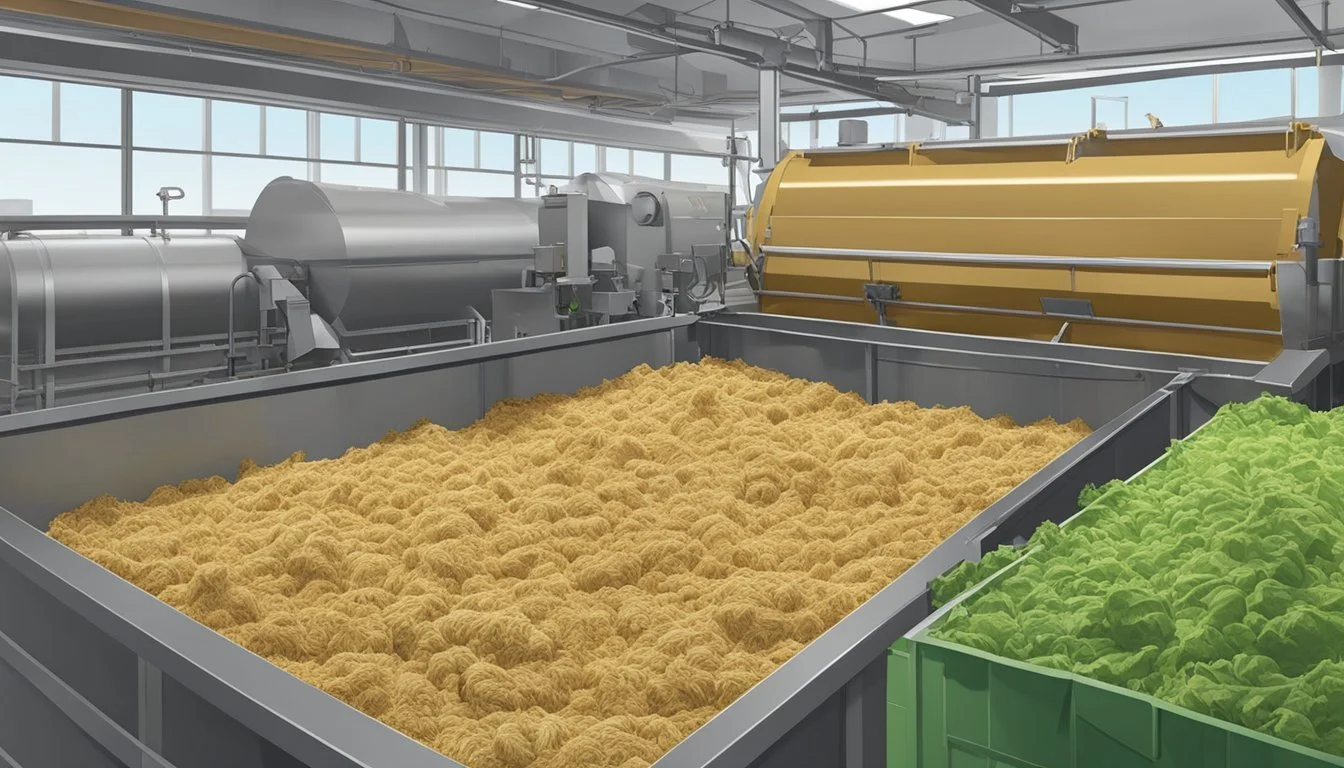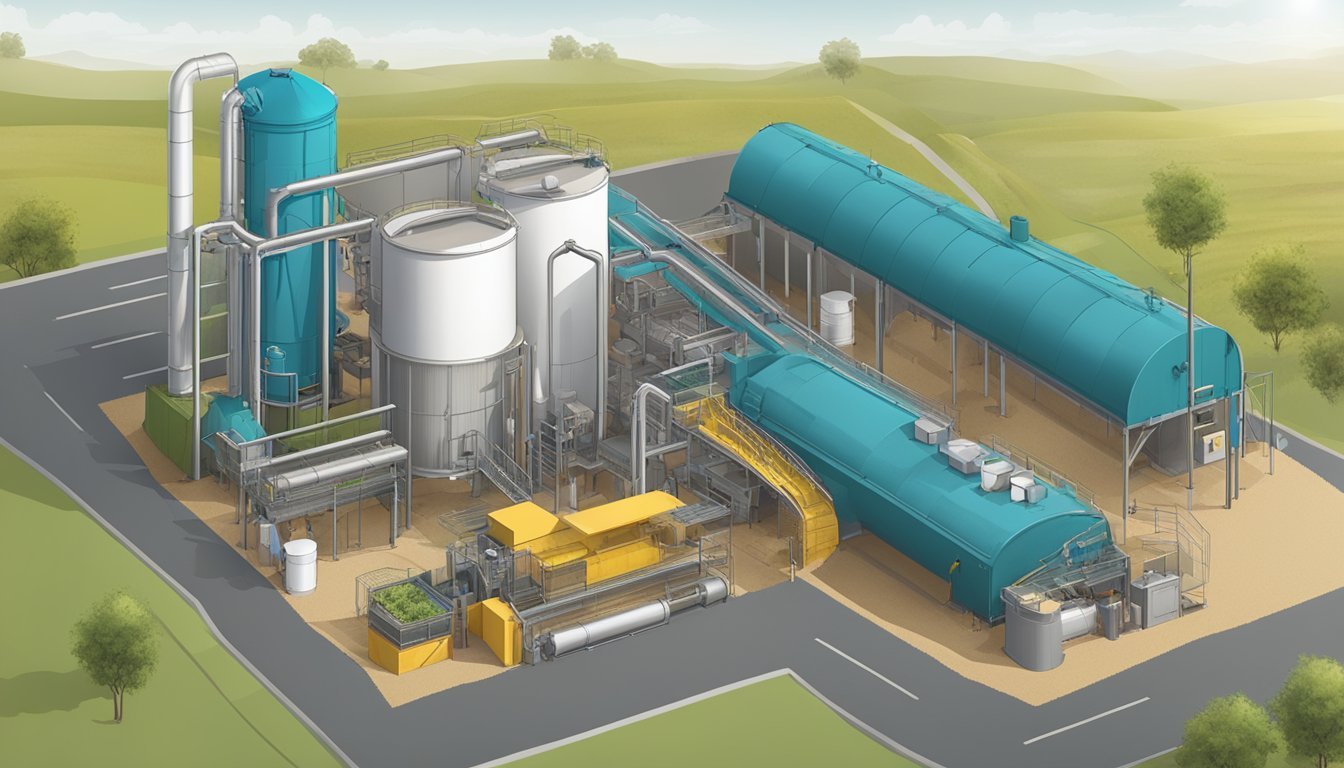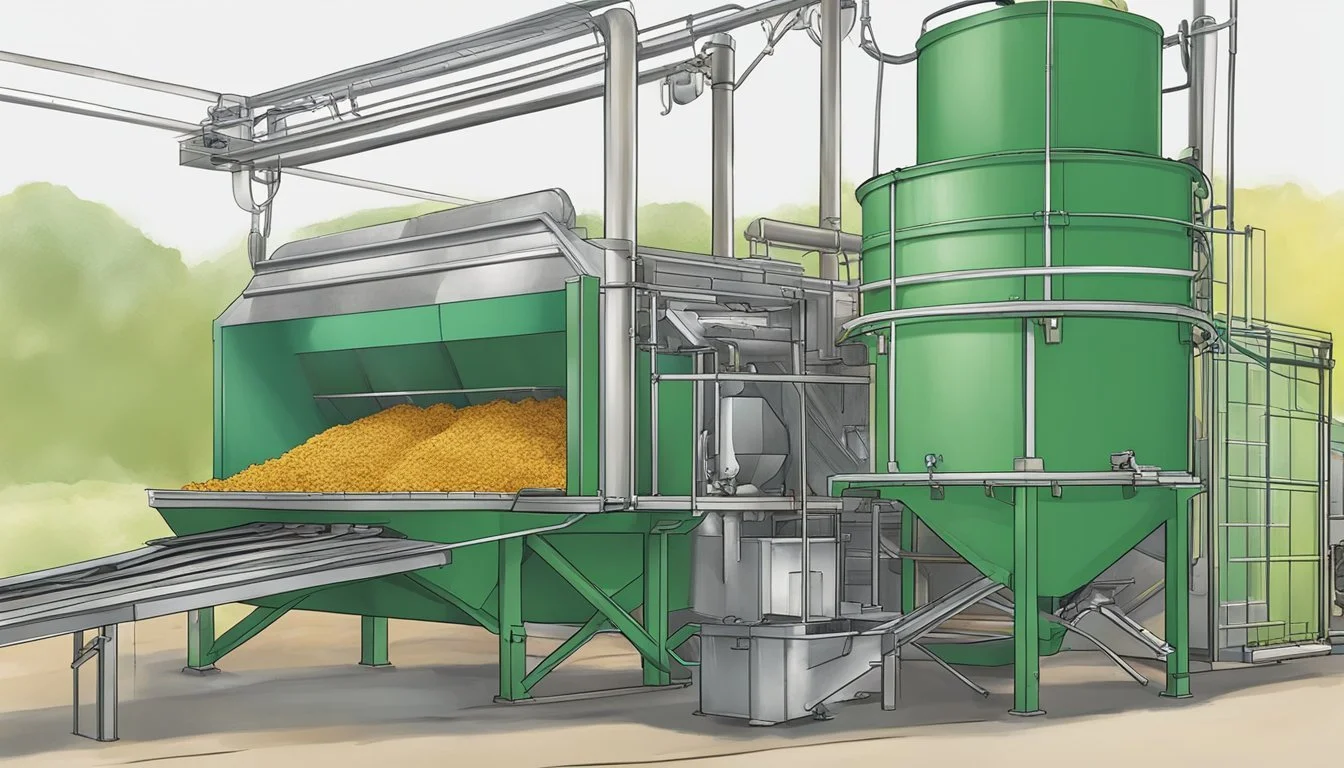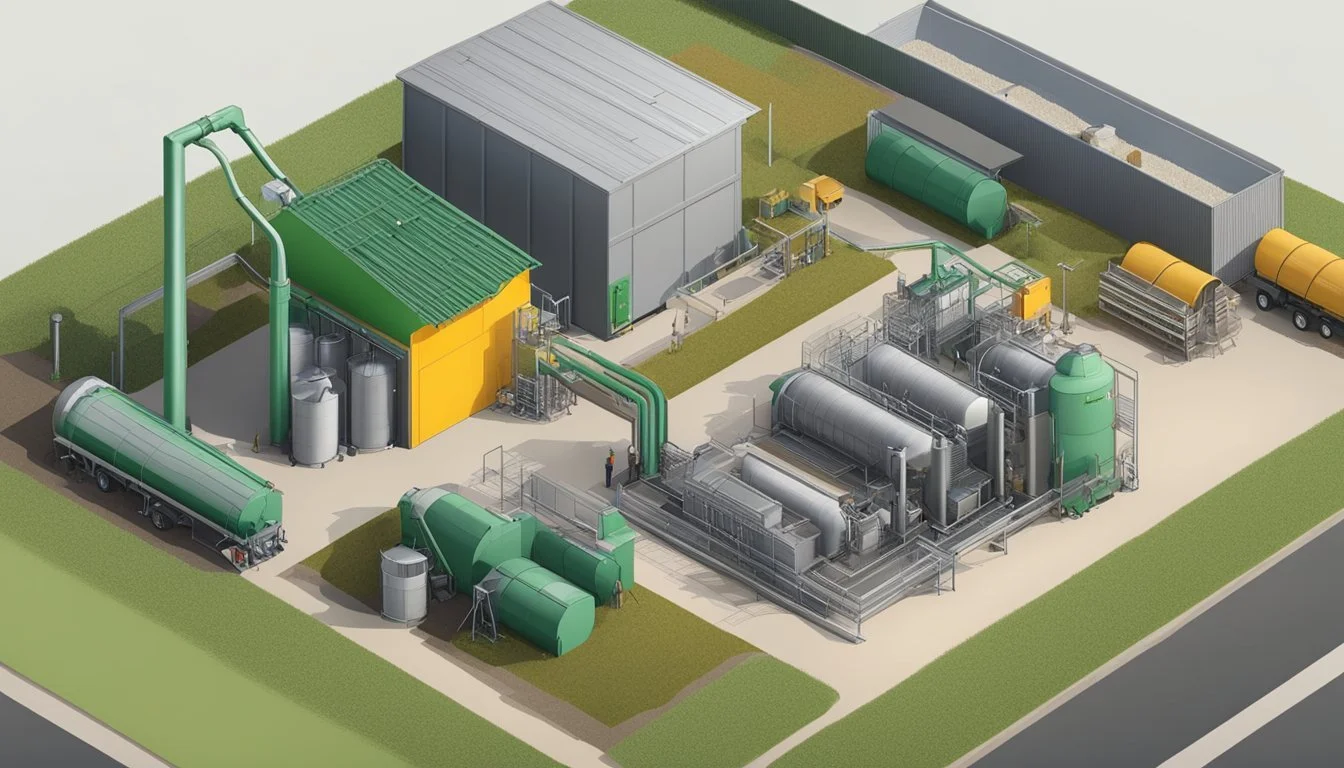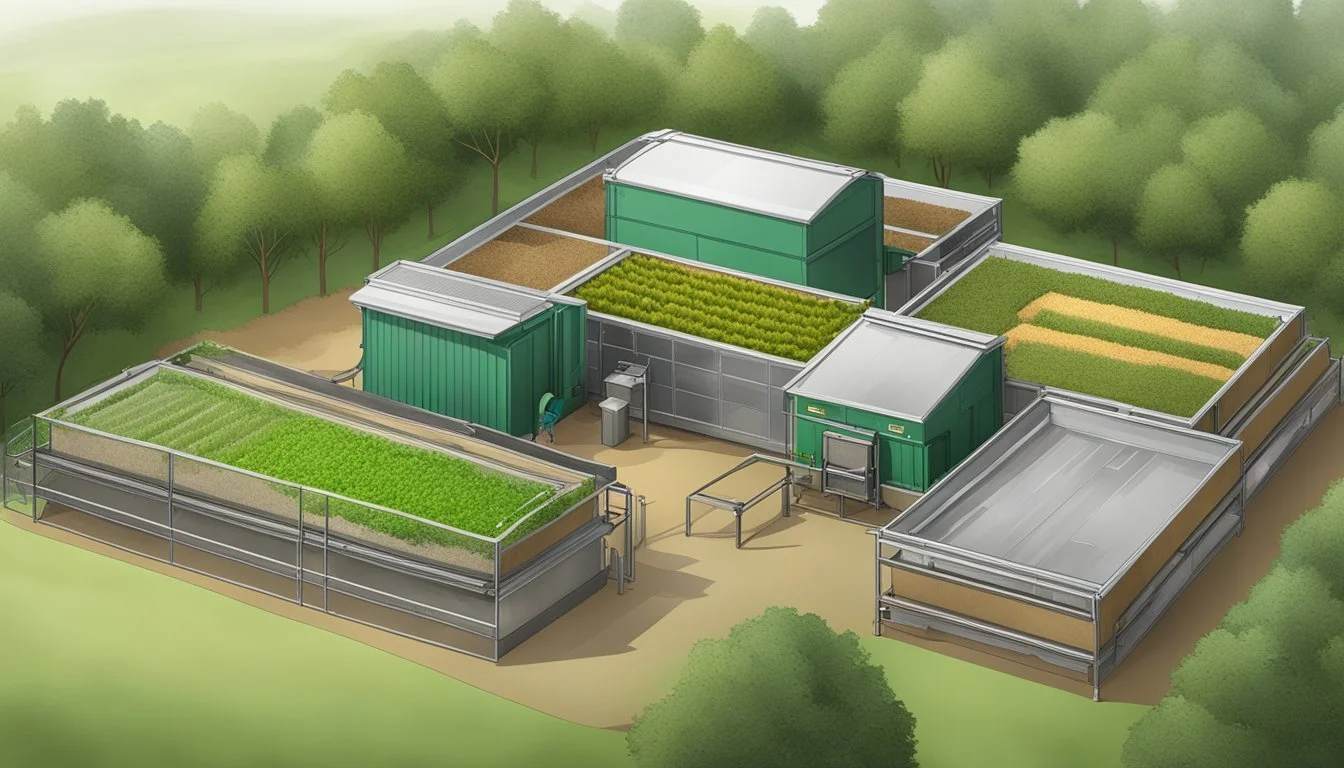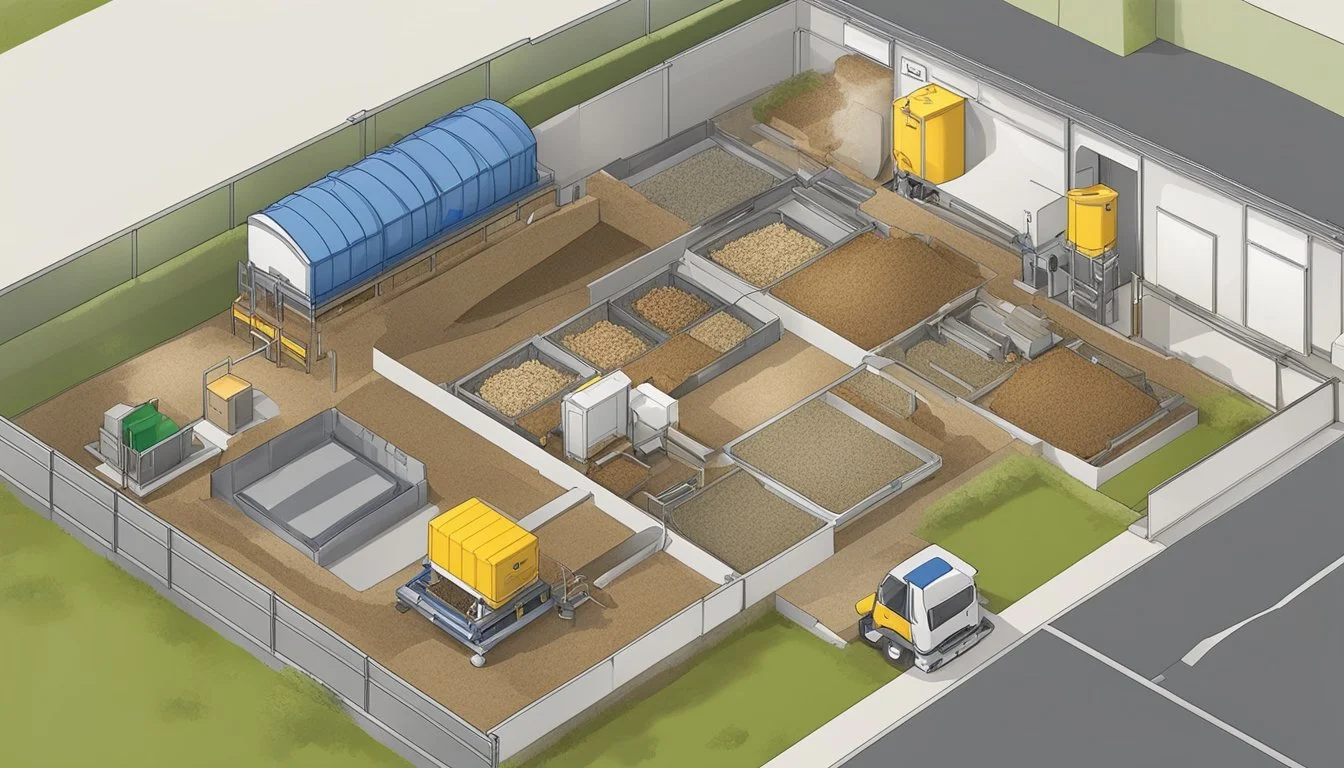What Are the Best Practices for Dealing with Chicken Waste in Closed Systems
Efficient Management Strategies
Efficient management of chicken waste is crucial to operating a sustainable backyard farm or closed-loop food system. It prevents the build-up of manure which can cause health problems for the chickens and unpleasant odors for the surrounding environment. The importance of effective chicken waste management extends to the nutrient cycle, enriching soil quality and reducing the need for chemical fertilizers.
One of the best practices for handling chicken waste is composting. This process turns waste into a valuable resource by transforming manure into bio-fertilizer, which can then be used to enhance the fertility of the soil. Incorporating chicken waste into compost provides plants with essential nutrients and improves soil structure and moisture retention.
Deep litter composting is another method to consider, utilizing the chicken coop's floor to manage waste. By maintaining a layer of organic material like straw or wood shavings on the floor that absorbs waste, the material gradually breaks down over time. This method not only simplifies waste management but also promotes a healthy living environment for the chickens by fostering beneficial microbial activity.
Overview of Chicken Waste Management
Effective management of chicken waste is crucial for sustainable poultry farming. Implementing best practices reduces environmental impact and promotes agricultural sustainability.
Importance of Sustainable Waste Management
Sustainable waste management within the poultry industry is essential to protect the environment and conserve resources. Poultry farmers aim to implement systems that mitigate the environmental impact of their operations, transforming waste into valuable products. Systems such as composting and anaerobic digestion can convert chicken manure into bio-fertilizers, significantly contributing to sustainability.
Chicken Waste in Poultry Industry
Chicken waste constitutes a variety of materials, including manure, feathers, and bedding. The poultry industry needs to address the proper handling of these wastes to prevent adverse effects on soil and water quality. Best practices involve the segregation of waste, proper storage, and management techniques that either recycle the waste on-site or prepare it for off-site utilization. This approach not only aids in sustaining the environment but also adds value to poultry operations.
Composting Chicken Waste
Composting chicken waste efficiently turns a potential pollutant into a valuable resource by harnessing the manure's richness in nitrogen and phosphorus. This section breaks down the composting process, explores the benefits, and addresses potential challenges.
Composting Process
Composting chicken manure entails combining the manure with carbon-rich bedding material such as straw or sawdust to balance the compost's carbon-to-nitrogen ratio. This mixture should be regularly aerated to supply oxygen, which is crucial for microorganisms responsible for breaking down the waste.
Steps:
Gather chicken manure and bedding materials.
Mix the manure with bedding in a compost bin.
Maintain the mixture at a moisture level similar to a wrung-out sponge.
Turn the compost periodically to incorporate air and redistribute heat.
Benefits of Composting
Composting chicken waste converts it into a nutrient-rich fertilizer that improves soil structure and fertility. The high levels of nitrogen and phosphorus in chicken manure compost provide essential nutrients for plant growth, acting as a natural and sustainable fertilizer.
Advantages:
Enhances soil health with organic matter.
Reduces fertilizer costs by producing a natural alternative.
Recycles waste, lowering the environmental impact.
Challenges in Composting
While composting chicken waste offers numerous benefits, there are challenges such as managing odor and pathogens. Keeping the correct carbon-to-nitrogen ratio and ensuring proper aeration and moisture can mitigate these issues but require diligent oversight.
Obstacles:
Practicing safe handling to minimize pathogen risk.
Controlling odors through careful balancing and maintenance.
Maintaining adequate temperature within the compost pile to facilitate decomposition.
Anaerobic Digestion and Biogas Production
Implementing anaerobic digestion for the management of chicken waste offers a sustainable approach to waste treatment while concurrently facilitating energy recovery through biogas production. It represents a closed-loop solution, transforming waste into valuable resources.
Anaerobic Digestion for Waste Treatment
Anaerobic digestion is a biological process that occurs in the absence of oxygen, where microorganisms break down organic materials such as chicken waste. This process significantly reduces the volume of waste and neutralizes potential pathogens. The digestate produced, which is the material remaining after digestion, can be used as a nutrient-rich fertilizer, thus completing the waste management cycle and contributing to sustainable waste management practices.
Biogas as a Renewable Energy
The biogas generated from anaerobic digestion primarily consists of methane ((CH_4)) and carbon dioxide ((CO_2)), with traces of other gases. Biogas can be combusted to generate heat and electricity, or it can be processed into renewable natural gas and transportation fuels. Biogas production through anaerobic digestion transforms waste into a valuable energy commodity, emphasizing the process's role in the development of sustainable energy solutions.
Chicken Waste as Fertilizer
Utilizing chicken waste effectively can transform it into a beneficial resource for agriculture. Specifically, chicken manure serves as a potent organic fertilizer that provides a rich source of nutrients to support plant growth and enhance soil health.
Utilizing Chicken Manure as Organic Fertilizer
Chicken manure is an excellent addition to soil because it is a high-quality organic fertilizer with a good balance of essential nutrients. Its nitrogen, phosphorus, and potassium (NPK) ratio is approximately 1.1-0.8-0.5, beneficial for plant growth. This ratio indicates that chicken manure is notably rich in nitrogen, which is a critical component for the photosynthesis process in plants. Its rapid-release properties mean that chicken manure releases approximately 75% of its nitrogen content within the first year, making it especially valuable for crops requiring high levels of these nutrients quickly.
Enhancing Soil Health with Chicken Waste
Beyond the provision of nutrients, applying chicken manure to soil improves its overall health and structure. It adds organic matter, which is vital for improving soil's moisture-holding capacity, drainage, and aeration. Adequate soil aeration is essential for root development and function, and good drainage prevents waterlogging, which can be detrimental to plant health. Chicken manure also contributes to better soil structure, reducing the risk of erosion and allowing for more effective retention of nutrients. As a source of organic material, chicken manure encourages the proliferation of beneficial microorganisms that play a role in maintaining fertile soil.
Regulations and Public Health
Proper management of chicken waste is vital for adhering to regulations and safeguarding public health. Compliance with waste disposal laws mitigates the risks posed by pathogens and environmental contaminants.
Waste Disposal Regulations
Waste disposal is governed by stringent regulations designed to prevent soil contamination, water pollution, and air pollution. For instance, the Poultry Products Inspection Act specifies rules for the handling and storage of poultry products to avoid health risks. Additionally, the Food Safety and Inspection Service (FSIS) provides guidance on sanitation standards which, when met, help to curb the spread of bacteria from poultry waste.
Impact on Public Health
Improper disposal of poultry waste can lead to the proliferation of harmful pathogens such as Salmonella, E. coli, and Campylobacter, posing severe health risks. Contact with contaminated soil or water can result in waterborne diseases. A closed system must ensure adequate treatment of chicken waste to prevent outbreaks of illness and maintain public health.
Recycling and Resource Recovery
In closed systems, the focus is on transforming chicken waste into valuable resources. This not only supports sustainability but also enhances the cost-effectiveness of poultry farming operations.
Methods to Recycle and Reuse Waste
Composting is a primary method where chicken manure is biologically decomposed, resulting in bio-fertilizers that enrich soil fertility. Simultaneously, anaerobic digestion is recognized for its dual benefits of waste management and bioenergy production, minimizing reliance on fossil fuels. Through processes like these, chicken waste is converted into worth, underscoring the importance of resource recovery practices.
Closed-loop Systems Integration
Closed-loop systems epitomize efficiency in sustainability efforts. They utilize outputs, such as processed manure, as inputs — for example, using the generated bio-fertilizer to grow feed crops. Integration of innovative closed-loop methods ensures the continuous reuse of resources within the farming ecosystem, thereby making the cycle cost-effective and environmentally friendly. Proper storage and handling within these systems are crucial to maintaining the value of recycled materials, as seen in established manure handling systems.
By adhering to these practices, chicken waste is not seen as an end-product but as a starting point for a new productive cycle within an agribusiness framework.
Infrastructure and Storage Solutions
In tackling chicken waste management in a closed system, adopting proven infrastructure and storage solutions is crucial. These practices ensure the process is hygienic, efficient, and accessible, minimizing environmental impacts.
Effective Storage Practices
Proper storage is fundamental to managing chicken waste. Containers must be designed to prevent leaks and odors, and should be composed of durable materials to withstand the corrosive nature of manure. For instance, covered storage systems help keep waste dry, reducing pathogens and facilitating easy transportation to composting sites or fields. Moreover, implementing manure handling systems enhances the value of waste by turning it into bio-fertilizer, merging storage with conversion processes.
Infrastructure for Managing Waste
Waste management infrastructure should integrate seamlessly with the rest of the farm operations. This may include advanced composting facilities that speed up the breakdown of organic matter, while keeping the process hygienic and contained. A thoughtful layout is essential for accessibility, allowing for easy maintenance and minimizing the labor required. Systems for anaerobic digestion also fit into this category, converting waste into biogas for energy production; a step towards sustainable energy use and closing the loop for a truly closed system.
Environmental and Ecological Considerations
Effective management of chicken waste is crucial for minimizing environmental impact and safeguarding ecological health. Particular attention must be given to preventing contamination of water sources and protecting biodiversity and aquatic life.
Reducing Environmental Impact
The handling of chicken waste in a closed system must address the emission of greenhouse gases such as ammonia (NH3), nitrous oxide (N2O), and methane (CH4), which are significant contributors to climate change. Strategies like the proper management of chicken manure can help in this regard. Key practices involve:
Composting: Converting waste into compost reduces the overall volume and neutralizes harmful pathogens. When chicken manure is composted, it mitigates the risk of nutrient runoff and decreases odors.
Anaerobic Digestion: This method not only manages waste but also produces biogas, serving as a renewable energy source.
Closed-Loop Systems: Implementing closed-loop systems for waste management can help ensure that all waste products are recycled within the farm ecosystem, significantly reducing the potential for environmental contamination.
Protecting Biodiversity and Aquatic Life
Biodiversity, particularly aquatic life, relies on clean and uncontaminated groundwater and water bodies. The leaching of nutrients and pathogens from poultry waste can lead to the eutrophication of water systems, posing a threat to these ecosystems. Therefore, chicken waste management must be rigorously controlled to avoid such adverse effects. Measures to consider include:
Buffer Zones: Creation of vegetated areas between chicken waste disposal sites and waterways can filter runoff.
Proper Storage and Handling: Facilities designed to prevent leakage and overflow are essential in protecting groundwater and nearby streams and rivers.
Regulated Application: The controlled use of chicken manure as bio-fertilizer on fields can enhance soil fertility while safeguarding nearby ecological systems.
FAQs on Chicken Waste Handling
What Are the Initial Steps in Managing Chicken Waste?
The initial steps in managing chicken waste involve reducing waste at the source and segregating it properly. This preparation is crucial for efficient waste handling in a closed system.
How Can Chicken Waste Be Reused?
Chicken waste can be transformed into a bio-fertilizer through practices such as composting or anaerobic digestion. These processes not only recycle waste but also contribute to a sustainable system.
What Is the Deep Litter Method?
The deep litter method involves maintaining a composting system within the coop itself. Bedding material is added regularly, and the mix is stirred to aid in composting, resulting in less frequent waste removal needs.
What should be the state of composted litter? Answer: Optimal litter should crumble when handled and not be overly wet.
How often should bedding be added? Answer: Add fresh bedding every few days, depending on flock size and waste production.
How Should Chicken Poop Be Handled Safely?
To handle chicken poop safely, wear appropriate personal protective equipment (PPE) and minimize dust during cleanup to avoid inhalation of potential pathogens.
Can Chicken Waste Contribute to a Closed-Loop Food System?
Certainly, by collecting chicken manure to compost, it contributes to a closed-loop food system where waste is efficiently used for garden fertilization, reducing external input needs.

